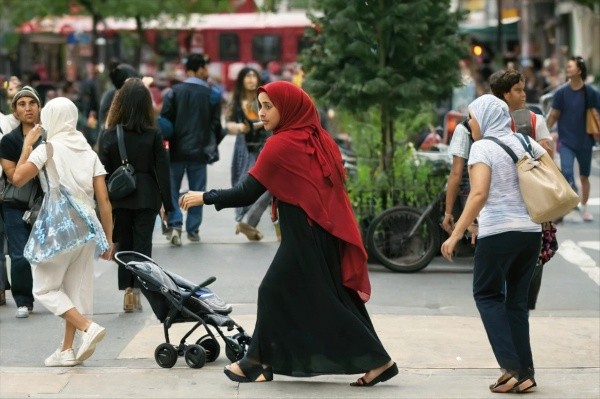Iran’s Plan to Strike Back Against the U.S.
Iran’s Military Preparations Following U.S. Attacks
Loading...

The situation has led some Muslims to consider emigrating from France, a trend that has already been observed among professionals
Tensions are rising in France, home to one of Europe's largest Muslim minorities, as Marine Le Pen's far-right National Rally party made significant gains in the first round of parliamentary elections. The unexpected surge has left many of France's estimated six million Muslims feeling vulnerable and concerned about their future in the country.
The National Rally secured about a third of Sunday's vote with 33.15 percent, outperforming both the left-wing New Popular Front alliance (28.14 percent) and President Emmanuel Macron's centrist coalition (20.76 percent). This result has sparked fear and uncertainty among French Muslims, many of whom see the far-right's policies as a direct threat to their way of life.
Fatimata, a 22-year-old French Muslim woman born to Mauritanian and Senegalese parents, expressed feeling "betrayed by France," noting that the support for a party promoting a ban on the hijab in public spaces was particularly hurtful. The National Rally's stance on issues such as immigration, dual nationality, and Islamic dress has long been a source of concern for France's Muslim community.
Jordan Bardella, a protégé of Le Pen who could potentially become France's next prime minister, has been vocal about his views on the "Islamisation" of certain neighborhoods and has proposed banning dual nationals from "strategic" state jobs. This rhetoric has heightened fears among French Muslims about their place in society and their professional prospects.
The situation has led some Muslims to consider emigrating from France, a trend that has already been observed among professionals. A recent study titled "La France, tu l'aimes mais tu la quittes" (France, loving it but leaving it) highlighted a "brain drain" of French Muslims leaving the country due to the "harmful effects of Islamophobia."
Legal experts, such as Rim-Sarah Alouane, note that while some of the National Rally's proposed policies would theoretically infringe on constitutional principles, the party's unique position could lead to "exceptional things" if it comes to power. This uncertainty has further fueled anxiety within the Muslim community.
The rise of the far-right is attributed to various factors, including the "demonisation of the radical left" and shifting theories on racism. Benjamin Tainturier, a doctoral student researching far-right discourse, suggests that the National Rally has succeeded in changing the definition of racism to a more subtle form over the past 15 years.
Concerns about increased police violence and discrimination have also been raised, with fears that a far-right government could legitimize and exacerbate these issues.
As France heads towards the July 7 run-off, President Macron is urging voters to support centrist candidates, warning of potential "civil war" if extremist parties triumph. However, for many French Muslims, the surge in far-right support has already shaken their sense of belonging and security in the country they call home.
The coming weeks will be crucial in determining the political landscape of France and the future of its diverse population. As the nation grapples with these challenges, the voices of concerned citizens like Fatimata, Elias, and Tiziri underscore the deep divisions and anxieties that have come to the fore in this pivotal election.
BMM - MBA
Iran’s Military Preparations Following U.S. Attacks
Troops remain in five strategic locations, raising fears of renewed tensions and long-term occupation.
Opposition forces have taken control of the capital after a significant offensive. Here is how it unravelled.
